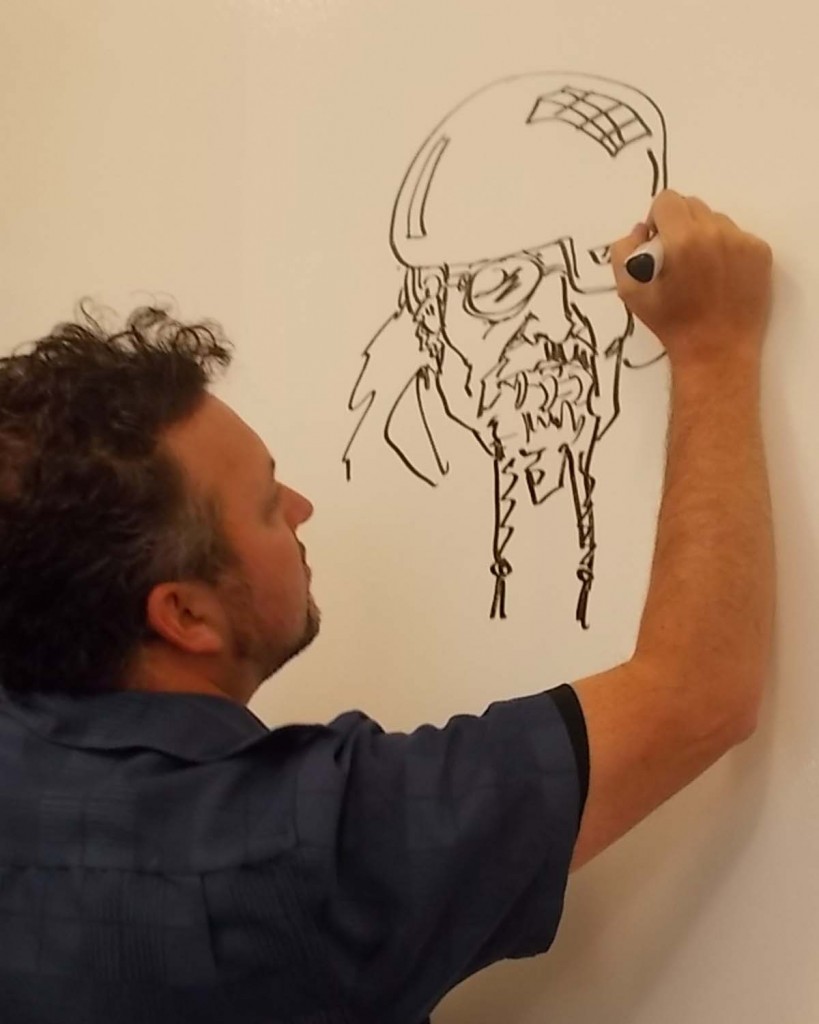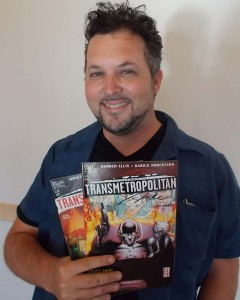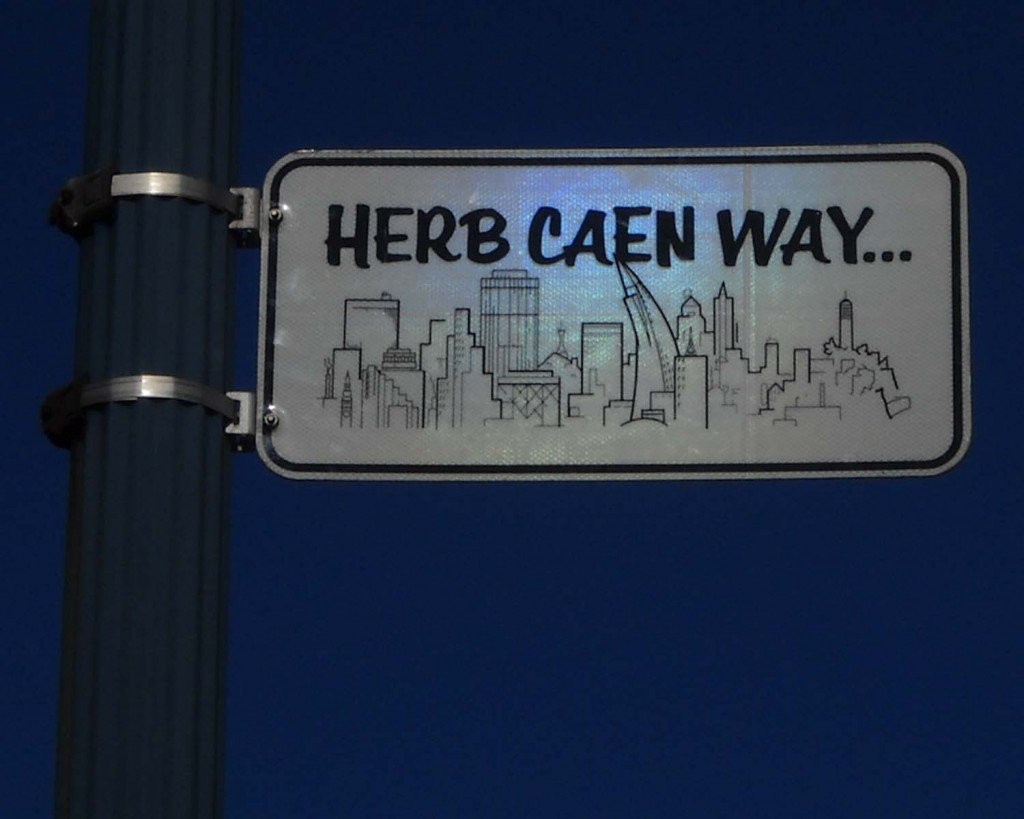What’s not to love about a split window V-dub van that’s been convertible-ized?
The penalty for reading Combat newspaper was death.
The writers, who provided content for the underground newspaper that reported information about the Resistance to citizens in occupied Paris, if caught, were tortured in such a precise way that they would beg for a coup de grâce to deliver them from their prolonged agony.
Richard C. Blum was featured in a recent issue of the East Bay Express in a story titled “Going Postal” that was touted on the front page with this teaser: “The husband of US Senator Dianne Feinstein has been selling post offices to his friends, cheap.”
That’s the same fellow who has been reported to be a driving force behind the Bullet Train that, according to recent polls, most California tax payers don’t want.
Since Senator Dianne Feinstein is currently leading a drive to define journalists as salaried people on the staffs of mainstream media and thus are on an “approved” list, (i.e. collaborators?) and since we don’t want to be appear on the lady’s s**t list, this column will be a review of the new movie “Rush,” which isn’t about the miracle working conservative pundit (soon to be officially canonized?) some folks call St. Rushbo. It is a new movie about Formula One racing and that should be an innocuous enough topic for someone who doesn’t meet the Senator’s standards for superior journalism or, as some might call it, journalistic exceptionalism.
In 1966, the Metropolitan Museum of Art in New York City held an exhibition that featured Formula One race cars. The spectacle of art aficionados walking around the silent machines talking in reverent whispers was a travesty of racing and a parody of the concept of a museum exhibition.
One particular spectator had to struggle for self control and refrain from screaming: “Gentlemen, start your engines!” (In 1966, Danica Patrick hadn’t even been born yet. [For all of October, her Go Daddy race car will be pink to help raise breast cancer awareness.]) Quite is for funeral homes. Anyone who has ever been in the pit area of a Grand Prix knows that the noise is palpable. There’s no whispering at a Grand Prix.
[If you are in a band that is generating an extreme amount of audience enthusiasm and you want to speak to your bandmate, don’t try to shout over the noise. Put a finger (yes, the middle finger works best) behind you pal’s ear and speak in a normal voice. The sound waves will travel through your bones and be transferred to his skull and inner ear and he will hear you perfectly well.]
Film director Ron Howard got it right. The engine noise in “Rush” deserves a credit for supporting role. (Is that a subtle way of saying the sound men deserve a Nomination?)
The question “Is this the best car racing movie every made” will be discussed for many years to come. Obviously some hypotheticals will spice up the debate. If (big hypothetical) Elvis could have played the role of Clay Regazzoni and added some songs to the soundtrack album, it would have been even better, but critics have to deal with what was on the screen and not the realm of woulda/coulda/shoulda. Doesn’t Monte Carlo need a theme song that’s just as upbeat as “Viva Las Vegas”?
What about the folks who don’t go nutty over cars? The book crowd might want to discuss the possibility that this film is a classic example of the literary device known as “twinning.” The film raises an age old philosophical question: which is better: the spontaneous (Dionysian) approach to life or the careful and methodically planned (Apollonian) method? Who said: “Spontaneity works well if it’s planned right!”?
In the film Niki Lauda (Daniel Brühl) and James Hunt (Chris Hemsworth) battle for the 1976 world championship for driving. Lauda’s whole life is channeled towards achieving his goal; Hunt believes that life is an opportunity to maximize the number of ways to have fun. (“Take it easy baby, specialize in having fun . . .”)
Watching the film we noticed that the cinematographer’s work might earn a Best Photography Oscar™ nomination, which, in turn, made us think that “Rush” may be a serious contender for several different Awards next spring.
That, in turn, made us wonder if the Oscar™ Awards ceremony had changed much since we covered the ones for 1974 and 1975. Back then getting a press pass was a Herculean task of the myth of Sisyphus level of challenge. Odds are, it is much more difficult now.
The “Going Postal” article, which is a condensation of a chapter in a new book of the same name by Peter Bryce, exemplifies the kind of journalism that is displayed annually in the series of books published by Project Censorship.
Censored 2014: Fearless Speech in Fearful Times goes on sale this week and the Censored Team will appear at Moe’s Books in Berkeley CA on the night of October 5, 2013.
Doing an article comparing and contrasting the 2013 Oscars™ with the events we witness back in the Seventies would not get any serious consideration from the evaluating committee at Project Censored, but . . . it would be hella fun, “n’est ce pas?”
Do the writers, whose work will be presented in the next edition of the Project Censorship series, also get the Dianne Feinstein Journalism seal of approval?
Would a whimsical article examining a thirty nine year gap in Oscar™ history, as an example of nostalgia laden coverage of the movie awards, be more likely to get a prize from the Dianne Feinstein Journalism Awards committee than from Project Censored? There’s one sure way to find out.
Some cynics will say that since James Hunt was both very wealthy and very good looking, it was almost inevitable that he would enjoy living and that others who were not dealt such a good hand would have grounds for envy, but the sad thing about that is that the people who most need to learn Hunt’s “go for the gusto” approach to life, are the ones most likely to be diverted by resentment instead. Didn’t we read somewhere that Summerset Maugham’s father was an ugly fellow who was married to the most beautiful woman in Paris?
Since we covered the 1974 and 1975 events as a reporter/photographer for the Santa Monica Independent Journal newspapers, and since the guy who helped us get that job is now a senior editor at Playboy, perhaps we could augment a trip to L. A. to cover the awards ceremony with a chance to revisit the Playboy mansion and trade some journalism gossip with the former editor of the Marina Mail.
Heck, if we get back down to “Shakey Town,” maybe we could visit the Marina Tenants Association and find out what’s up with the Los Angeles County Assessor. The mainstream media is ignoring that intriguing story. Did we just hear Fienstein’s voice saying: “Good boy! Want a treat?”? Aren’t journalists who can “heel!” on command, worth their salary? How can we submit a story pitch for possible inclusion in Project Censored’s book for the overlooked news from 2013?
Question for both of California’s Senators: Why haven’t the Democrats who live in Tea Bag Republican Congressional Districts already started recall petitions for their representatives who seem oblivious to the wants and needs of their constituents?
Will older pundits compare the shutdown to the Chickie run sequence in “Rebel without a Cause” rather than the mandatory (?) reference to the film “Thelma and Louise”?
Are the approved journalists and pundits giving the voters a heads-up about what will happen if the impasse lasts until the 2014 mid-term elections? If the situation disintegrates into a prolonged Mexican standoff, will the paid lackeys in the mainstream media dutifully report that this is a marvelous example of a democracy in action?
If Jean-Paul Sartre, Albert Camus, and the others who risked their lives to provide content for Combat got a paycheck wouldn’t the existence of that slip of paper have been the equivalent of a death warrant? If they didn’t; wouldn’t Senator Feinstein dismiss their efforts as useless examples of pathetic amateur scribbling? Since possession of a copy of Combat was a capital offense, we wonder how often a mint condition issue is available on e-Bay and how much one usually fetches.
[Note from the photo editor: Over the years the WLJ photo library with quality images of Phil Hill, John Surtees, and Dan Gurney has slowly evaporated. (Is it true that Howell Connant’s photo library was destroyed when the World Trade Center buildings collapsed?) The best we could do on short notice was to use a photo of the 1966 VW van, seen recently in San Francisco, that was channeled, shortened, and convertible-ized by folks who wanted to promote Tillamook Cheese. We wanted to use those photos for a story idea tip to the ruling junta at Jalopnik but maybe a link to this column will serve the same purpose.]
Famed war correspondent Ernie Pyle, in a book titled “Last Chapter,” wrote (on page 37): “I’ve always felt the great 500-mile auto race at Indianapolis was the most exciting event – in terms of suspense – that I’ve ever known. The start of a B-29 mission to Tokyo, from the spectator’s standpoint, was almost the same as the Indianapolis race.”
Now the disk jockey will play Elvis’ songs: “Spinout,” “Speedway,” and “Viva Las Vegas.” We have to go and start the arduous process of applying for press credentials for the next Oscar™ Awards ceremony. Have a “Boh Chi” type week.




Walking a mile in Ernie Pyle’s moccasins
Listening to an old man in a tavern in Paris claim that, as a child, he had sat on Hemingway’s lap in the same bar and heard the world famous author tell interesting stories was an experience that epitomized our concept of what it’s like to be a columnist. For a middle class kid the possibilities to travel the world, meet celebrities, see the iconic sights, and have fun doing it, seemed like a formidable challenge. Our efforts to find a way to achieve that goal indicated that columnists were proxies for the middle class who were assigned to do those exact things and then write up a brief report on the experience for workers who craved a vicarious taste of the world outside their hometown.
A torn and tattered copy of Ernie Pyle’s “Brave Men” hinted that journalists, columnists, and war correspondents had a front row seat for some of the most dangerous facets of life in the fast lane. April 18th has been selected by the National Society of Newspaper Columnists to be the annual day of celebration honoring the art and craft of column writing because it was on that date in 1945 that war correspondent Pyle was killed in action on the island of Ie Shima in the Pacific Theater in WWII.
The World’s Laziest Journalist tries to mark Columnists’ Day in a different way every year. We’re not going to do a column that recaps what Ernie Pyle did and why he was honored every year because that would become too predictable. It may seem a bit arrogant and presumptuous to make the annual National Society of Newspaper Columnists’ Day effort heavily autobiographical but this year it seemed that it was the best way to accurately tell the back story of why someone would want to become a columnist.
Some folks select a particularly exotic slice of contemporary living and specialize in a lifetime of examining something like auto racing for a specialized audience but for a kid in Scranton, Pa., embracing the “variety is the spice of life” philosophy, becoming a columnist seemed to be the best solution to the challenge.
Three of our heroes Hemingway, HST, and Jack Kerouac, wanted to be world famous writers. They got what they wanted and it made them miserable. (Two of the three were columnists. Weren’t two, briefly, Berkeley residents?) Berkeley writer Philip K. Dick wrote a book predicting that a world famous writer would live the life of a recluse in Colorado. Nobody agrees with the World’s Laziest Journalist’s interpretation that “Man in the High Castle” was about Hunter S. Thompson’s career.
We think that B. Traven, Thomas Pynchon, and J. D. Salinger would endorse the idea that being an anonymous columnist living out his childhood dreams ain’t a bad way to go.
Young people at the Hostel in Fremantle who suggested that we should go to Kalgoorlie may have intended the suggestion as an elaborate practical joke because a good many travelers might not think it was worth the effort. We had the last laugh because of our fascination with gold panning. Travel writers are obliged to make the places they write about seem irresistible for every reader but a columnist can be brutally honest and say that if you don’t know who Fred C. Dobbs was and relish the prospect of a visit to the Prospectors’ Hall of Fame, then you better consider a different destination.
If a movie review columnist works for a corporate conglomerate that owns the TV network that broadcasts his verdict about a new flick also owns the film company that made the new release, then he might be required to announce it was a “must see” example for everyone to see. It is rare that a movie is a valid example of the “one size fits all” philosophy. So too, it is with travel destinations.
Being a columnist means that when the book by a teacher at Annapolis, John Beckman, titled “American Fun Four Centuries of Joyous Revolt” catches your attention in City Lights book store, there are two reasons for buying it: 1. the fun of reading it and 2. the chance to get an item for the next column. Sometimes it seems that being a columnist means being an advanced scout for fun in all areas of culture.
What’s not to like about feeling a compulsion to discover esoteric topics such as snapshot collecting (See accompanying photo) or finding out what “slack liners” do? Being a columnist means taking a last nostalgic look at San Francisco’s art installation titled “Defenestration,” which is scheduled to be dismantled and the host building will be demolished.
Being required to go out and have fun is a great assignment. It’s too bad that the contracting newspaper industry doesn’t offer J-school grads many prospects for snagging that plum assignment. The odds of a newspaper writer getting subsidized to experience such antics are slim and none.
The old fellow in Harry’s New York Bar in Paris explained that the place had been owned by his father and he had inherited it. He had spent many hours there as a kid when one of the regulars was a rookie writer named Hemingway.
If a columnist wanted to do a column about having a sarsaparilla at that place and others such as Hurley’s in New York City, Heinold’s in Oakland, and the Blue Fox in Tijuanna, then it might be a good idea to also visit Skimpy’s in Kalgoorlie. Does the columnist reviewer Joe Sixpack ever get to go on assignment outside the Philadelphia area?
If a columnist writes for websites devoted to political punditry, then bits of arcane, esoteric information and obscure bits of history have to be strung together with items that have not saturated the mainstream media.
On the morning of Sunday April 13, 2014, while listening to KCBS radio for the nine a.m. network news we heard the In Depth program which delved into the topic of rents. A guest casually mentioned that “we” want to revisit the question: “Is Rent Control Unconstitutional?” Since the US Supreme Court ruled on that earlier in the Obama era, we will have to check further into this story (and hope the NY Times assignment desk doesn’t read this column) before we do the fact checking and write our take on the topic.
When the Internet was in the formative stage, site owners and publishers were desperate to find “a unique voice” but as the corporatization of the web becomes ubiquitous, the trend is to prefer homogenized content providers. (Think of Peggy Lee’s song “Is that all there is?”) This week both Thom Hartmann and cartoonist Tom Tomorrow proclaimed that “we longer have a functioning democracy in America.”
If a political pundit working in the USA dares to suggest an unorthodox idea, he is immediately ostracized for being a conspiracy theory loon. In a few short years, the political atmosphere in America has gone from JEB Bush being a pariah to the contention recently that JEB is the de facto frontrunner. Is it a conspiracy theory for a columnist to irreverently ask: “Where is the ‘Democracy in action’ aspect of that transition?”?
With Democracy DOA and another war immanent we wonder on National Columnists’ Day, if we could have done something to avoid this mess. Recently a comment was posted indicating that the World’s Laziest Journalist needs to put more work into the columns. We know that if we took more time the end results would be greatly improved and with that in mind we’ll ask the site’ owner and publisher: “Should we ask for a raise (to inspire the extra work) or should we adopt the philosophy of Frank Sinatra who, when told that the director of “Ocean’s 11” wanted to re-shoot a scene, responded by saying: “That was good enough!”?
For the closing quote will use Hunter S. Thompson’s maxim: “Buy the ticket; take the ride.”
Now the disk jockey will play Edith Piaf’s “Non, Je ne regretted rein,” Waylon Jenning’s “I may be used (but baby I ain’t used up),” and Dooley Wilson’s “As time goes by.” We have to celebrate the day with an extra ration of A&W diet root beer. Have a “specialize in having fun” type week.